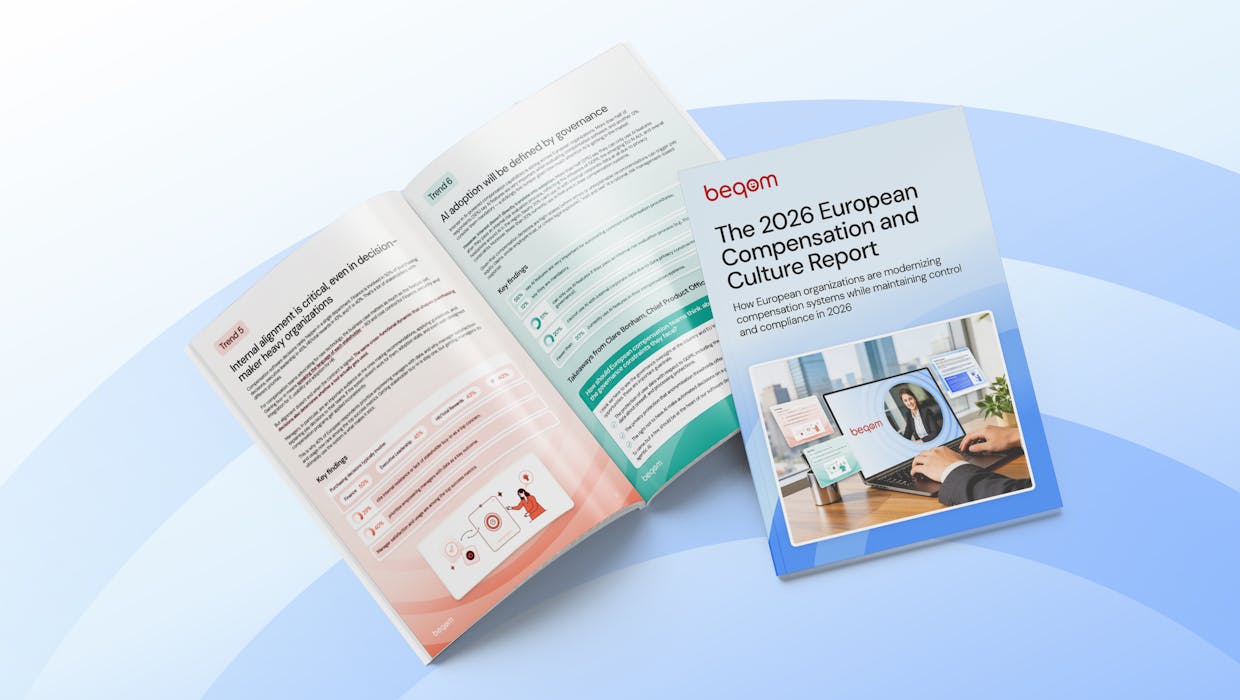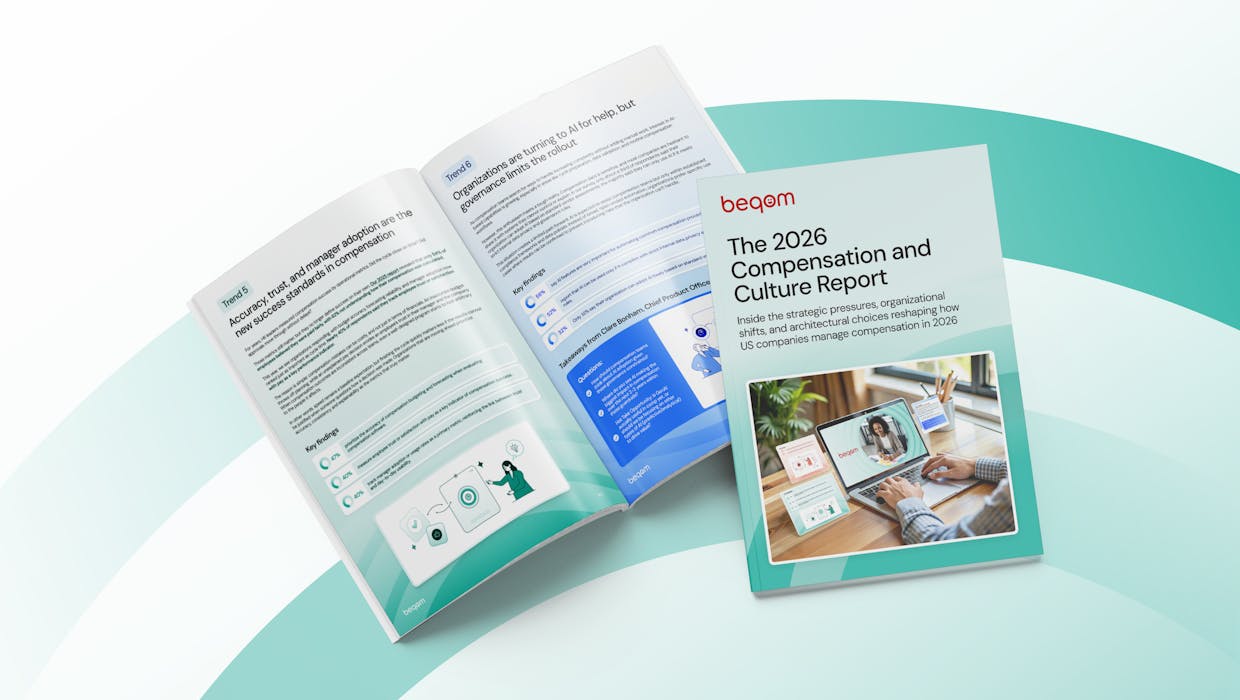Advancing DEIB Goals Through Fair and Equitable Compensation Management

Learn more about the following beqom products
Encouraging diversity, equity, inclusion, and belonging (DEIB) is a critical imperative for organizations striving to attract workers and create a thriving and inclusive workplace.
In a previous blog, we looked at how performance management practices and systems can support DEIB goals. It is equally crucial to ensure that compensation practices align with these objectives.
Compensation management processes and software play a vital role in supporting DEIB initiatives, particularly by addressing pay equity and promoting fair and equitable compensation practices. In this blog, we will examine how compensation management processes and software can assist in advancing DEIB goals.
Pursuing a strategy of DEIB can benefit the organization by attracting a wider talent pool, enhancing innovation and problem-solving, expanding market reach, improving decision-making, and enhancing employee engagement and retention.
Compensation strategies, and the resulting policies and execution, are central to the successful execution of DEIB strategy. It only follows, then, that effective compensation management is a key pillar of any DEIB efforts.
The role of compensation management in supporting DEIB
Your compensation management system can provide you with the capabilities needed to execute pay strategies that support your DEIB strategy, such as:
- Pay equity analysis
- Fair and transparent compensation practices
- Budget simulations for remediation planning
- Performance-based compensation
Let’s look a little more closely at these capabilities.
Pay equity analysis
Compensation management software can play a crucial role in conducting comprehensive pay equity analyses to identify potential pay gaps based on gender, race, or other protected characteristics. These analyses involve examining compensation data and comparing the pay of individuals in similar roles to identify any discrepancies that cannot be explained by legitimate factors such as experience or performance.
For example, let's consider a company that uses compensation management software to analyze its pay data and discovers a significant pay gap between male and female employees in similar positions with similar skill profiles. The software helps the organization identify this unexplained gap, indicating a potential bias in its compensation practices. Armed with this information, the company can take proactive measures to address the gap, such as conducting further investigations, adjusting salary structures, or implementing training programs to mitigate bias during compensation decisions.
Fair and transparent compensation practices
Compensation management software enables organizations to establish fair and transparent compensation practices that align with DEIB goals. By utilizing predefined salary ranges, market data, and job evaluation methodologies, the software ensures consistency and fairness in compensation decisions.
For instance, consider a company that has implemented compensation management software with predefined pay bands and clear job descriptions. This software ensures that employees in similar roles are compensated consistently based on their skills, qualifications, and performance. This transparency promotes a sense of fairness and equity among employees, reinforcing the organization's commitment to DEIB principles, and promoting trust.
Budget simulations for remediation planning
Compensation management software that includes budget simulation capabilities can allow organizations to estimate the cost of implementing remedial pay strategies to address identified pay gaps. These simulations provide insights into the financial impact of different remediation plans, helping organizations make informed decisions and allocate resources effectively.
For example, imagine a company that identifies a pay gap between minority and non-minority employees in certain job categories. By utilizing compensation management software, they can run budget simulations to assess the costs associated with implementing various remediation strategies, such as salary adjustments, targeted bonuses, or professional development programs. These simulations provide the organization with valuable information to develop a comprehensive and financially feasible plan to address the pay gap.
Performance-based compensation
Compensation management processes and software, especially when closely integrated with performance processes, can facilitate the alignment of compensation with performance evaluations, promoting fairness and transparency in reward systems. By implementing performance-based compensation frameworks, organizations can ensure that individuals are rewarded based on their performance and contributions, regardless of their background.
For instance, consider a company that leverages compensation management software to link compensation decisions to objective performance metrics and evaluations. This approach eliminates biases that may arise from subjective assessments and personal preferences. Employees are evaluated based on predetermined criteria, such as meeting specific goals, demonstrating competencies, aligning with company values, or achieving key performance indicators. As a result, individuals are rewarded fairly, fostering an inclusive culture where everyone has equal opportunities to earn rewards and recognition.
How to use compensation effectively to support your DEIB strategy
Compensation management processes and software can play a pivotal role in supporting an organization’s DEIB goals by addressing pay equity, promoting fair compensation practices, and providing tools for analysis and remediation.
By leveraging compensation management software, companies can identify and rectify pay gaps, establish fair and transparent compensation practices, simulate budget scenarios for remediation planning, and implement performance-based compensation systems.
These efforts contribute to fostering an inclusive and equitable work environment, attracting and retaining diverse talent, and reinforcing the organization's commitment to DEIB principles. Through effective compensation management aligned with DEIB goals, organizations can create a workplace where employees feel valued, recognized, and rewarded based on their merit and contributions, regardless of their background or identity.
For information about how beqom Total Compensation Management can support your DEIB goals and create a high-performing culture, contact us at beqom.
1 Gartner, How Technologies Can Help D&I Leaders Power Organizations Beyond Resilience, by John Kostoulas, 28 July 2021.
Gartner does not endorse any vendor, product or service depicted in its research publications, and does not advise technology users to select only those vendors with the highest ratings or other designation. Gartner research publications consist of the opinions of Gartner’s research organization and should not be construed as statements of fact. Gartner disclaims all warranties, expressed or implied, with respect to this research, including any warranties of merchantability or fitness for a particular purpose.
GARTNER is a registered trademark and service mark of Gartner, Inc. and/or its affiliates in the U.S. and internationally and is used herein with permission. All rights reserved.








